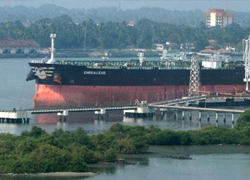In my last post about the Enrica Lexie incident, I stated that under the United Nations Convention on the Law of the Sea (UNCLOS), Italy had excusive jurisdiction over the Italian military personnel who allegedly killed two Indian fishermen mistaking them for pirates. Roger Philips at Communis Hostis Omnium rightly pointed out that the Convention for the Suppression of Unlawful Acts of Violence Against the Safety of Maritime Navigation (SUA Convention) contained some contradictory jurisdictional provisions. Upon a closer analysis of the relevant international law, it is clear that Italy and India have concurrent jurisdiction over the Italian armed guards.

India and Italy have both signed and ratified the 1988 SUA Convention requiring States Parties to criminalize the enumerated offences from Art. 3 in their domestic penal codes. Art. 3(1) lists performing “an act of violence against a person on board a ship if that act is likely to endanger the safe navigation of that ship,” as well as “injur[ing] or kill[ng] any person, in connection with the commission or the attempted commission of any of the [enumerated] offences.” The alleged actions of the Italian marines clearly implicate the SUA Convention.
SUA Art. 6 expressly allows for jurisdiction based on the territorial, nationality, passive personality, and protective principles. Thus while UNCLOS confers jurisdiction on Italy alone, the SUA Convention allows for India to claim jurisdiction under Arts. 6(1)(1) and 6(2)(2) and Italy to claim jurisdiction under Arts. 6(1)(1) and 6(1)(3). As a purely practical matter, jurisdiction falls to the country that reaches the alleged perpetrators first, subject to the principle of aut dedere aut judicare (“extradite or prosecute”).
Indeed, the facts of the Enrica Lexie mirror those from the famous 1927 Lotus opinion by the PCIJ where a French ship collided with a Turkish ship killing eight Turkish sailors on the high seas. The French captain was prosecuted in Turkish courts and the Turkish and French governments submitted the question of jurisdiction to the PCIJ. The latter held that, absent a relevant provision to the contrary, Turkish courts could exercise criminal jurisdiction over the French captain because the incident took place on the high seas and had a substantial effect on Turkey.
Art. 6 of the 1958 Geneva Convention on the High Seas, which says that all ships “save in exceptional cases expressly provided for in international treaties . . . shall be subject to [the] exclusive jurisdiction [of the flag state] on the high seas,” provided a provision contrary to the PCIJ’s holding in Lotus that was subsequently reflected in UNCLOS. The SUA Convention apparently provides for an express exceptional case anticipated by art. 6 of the Geneva Convention. To obtain exclusive jurisdiction over the Italian guards, Italy would have to convince India, through diplomatic channels, that the SUA Convention did not apply to the Enrica Lexie because the presence of armed military personnel on board made it a ship “operated by a State when being used as a naval auxiliary,” and thus outside the auspices of SUA pursuant to art. 2(1)(2) – a nearly impossible scenario.
So, as Douglas Guilfoyle points out on the European Journal of International Law’s blog EJIL Talk, whether the Italian marines will be indicted by the Indian authorities will be a question of sovereign immunity, not jurisdiction. Because the Italian guards were part of the military, they are considered a Vessel Protection Detachment (VPD) rather than a team of Private Armed Guards (PAGs). As a general rule, the former enjoys sovereign immunity while the latter does not. Professor Guilfoyle suggests that though it is ultimately up to the Indians to respect Italy’s sovereign immunity – and India will undoubtedly seek out exceptions it can use to overcome the immunity claim – the immunity claim will likely survive because the Italian guards were acting in their official capacity and state practice is such that “immunity is not lost in fatal injury cases even where a defendant’s conduct was: careless, reckless, involved excessive force, or was contrary to instructions.”
Despite the presence of concurrent jurisdiction, Italy will most likely have the ultimate responsibility for deciding whether or not to compensate the victims of the Indian fishermen’s families or punish its military personnel for its actions. Regardless of the ultimate outcome, the investigation must be transparent, as the question of liability is ultimately a factual one requiring the two competing stories of the incident to be reconciled. If such reconciliation reveals the case of mistaken identity described in my previous post to be true, the victims’ families should be compensated and the guards punished for their hasty and improper use of force.


